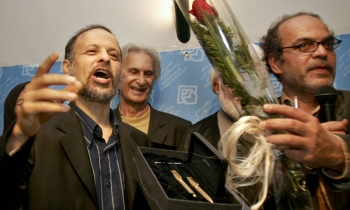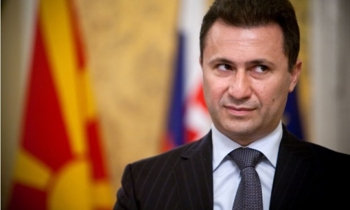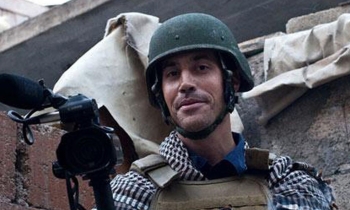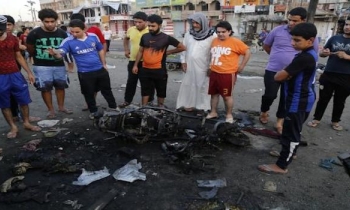Prosecutors in Uzbekistan have opened criminal proceedings against a reporter for Deutsche Welle for tax evasion and working without accreditation, the German broadcaster has reported.
Natalia Bushuyeva, an Uzbek citizen, “is charged with tax evasion and conducting her activity without a licence,†her defence lawyer, Suhrob Ismailov, told news agency Agence France-Presse (AFP).

Bushuyeva is the first journalist to be charged with unlicensed activities since Uzbekistan adopted a law last year that bans local journalists from working for foreign media without accreditation. Bushuyeva was summoned to the prosecutor’s office in the capital Tashkent last Friday. If found guilty, she could be sentenced to up to six months in prison.
The government had cancelled the accreditation of Obid Shabanov, correspondent of Deutsche Welle in the southern region of Bukhara, on March 15, 2006 and accused him of putting out inaccurate news in a February 1 programme on the station, when he reported that 30 people had frozen to death in an unheated bus on its way to Moscow.
The pro-government gorizont.uz said that Bushuyeva had worked for Deutsche Welle radio for five years and “never declared her income... Moreover, she worked without being accredited, which is also a breach of the law.â€
Deutsche Welle Director Erik Bettermann Monday protested against the “massive restrictions†on its freelance journalists in Uzbekistan by state authorities. Bettermann said “it is not acceptable†that journalists are “intimidated and put under pressure†through state prosecutions. Deutsche Welle said it had officially requested the Uzbek embassy to explain the incident. “We demand that Uzbekistan takes its responsibilities seriously and allow the free practice of journalism,†he said.
The Uzbekistan government had announced on February 24 last year that journalists working for foreign media that criticised official policies risked losing their accreditation for interfering in “internal affairs†or insulting the “dignity and reputation†of Uzbeks, Reporters sans Frontières (RSF)’s latest annual report on the country says.

The procedure for registering with the authorities was extended from 10 days to two months. Foreign and Uzbek journalists were forbidden to work with unaccredited Uzbek colleagues on pain of prosecution. Journalists were likened to terrorists and the decree said those who “called for the overthrow of the state or incited racial and religious hatred†would be deported. Both US-funded Radio Free Europe/Radio Liberty and Britain’s BBC World Service closed down operations in the Uzbek capital.
The authorities tightened controls on foreign journalists after accusing them of helping Islamic insurgents foment an uprising in 2005 in the eastern province of Andizhan that was brutally put down by security forces. Uzbek troops are reported to have fired on a crowd, killing more than 800 civilians. President Islam Karimov’s government insists 187 people —mainly “terrorists†and security forces —died in Andizhan during an attempted coup by Islamist extremists.
Uzbek journalists, according to RSF, were frontline targets of the crackdown. Six reporters on the government paper Pravda Vostoka were dismissed in July last year after the presidential office called them “politically unreliable.†The journalists (Jamilya Aipova, Olga Fazylova and others) contributed the independent website Tribune (www.tribune-uz.info).
Two independent journalists, Ulugbek Khaidarov and Jamshid Karimov (the president’s nephew), were also victims. Karimov vanished on September 12, 2006 between his home and the hospital in Jizak where his mother was a patient. His family found out on October 5 that he had been interned in a mental hospital and would be held there for at least five months.
Khaidarov was arrested on September 14, 2006 and falsely accused of “extortion and blackmail†after a woman approached him at a bus stop and stuffed some banknotes in his pocket that he quickly threw on the ground. Police arrested him a few seconds later. He was sentenced to six years in prison by a court in Jizak on October 5 before being freed without explanation a month later.
In the wake of the crackdown, Uzbekistan’s relations with the West plummeted. The European Union (EU) imposed sanctions on the Central Asian country while Washington, a former ally, also lashed Tashkent for its use of force on civilians.









